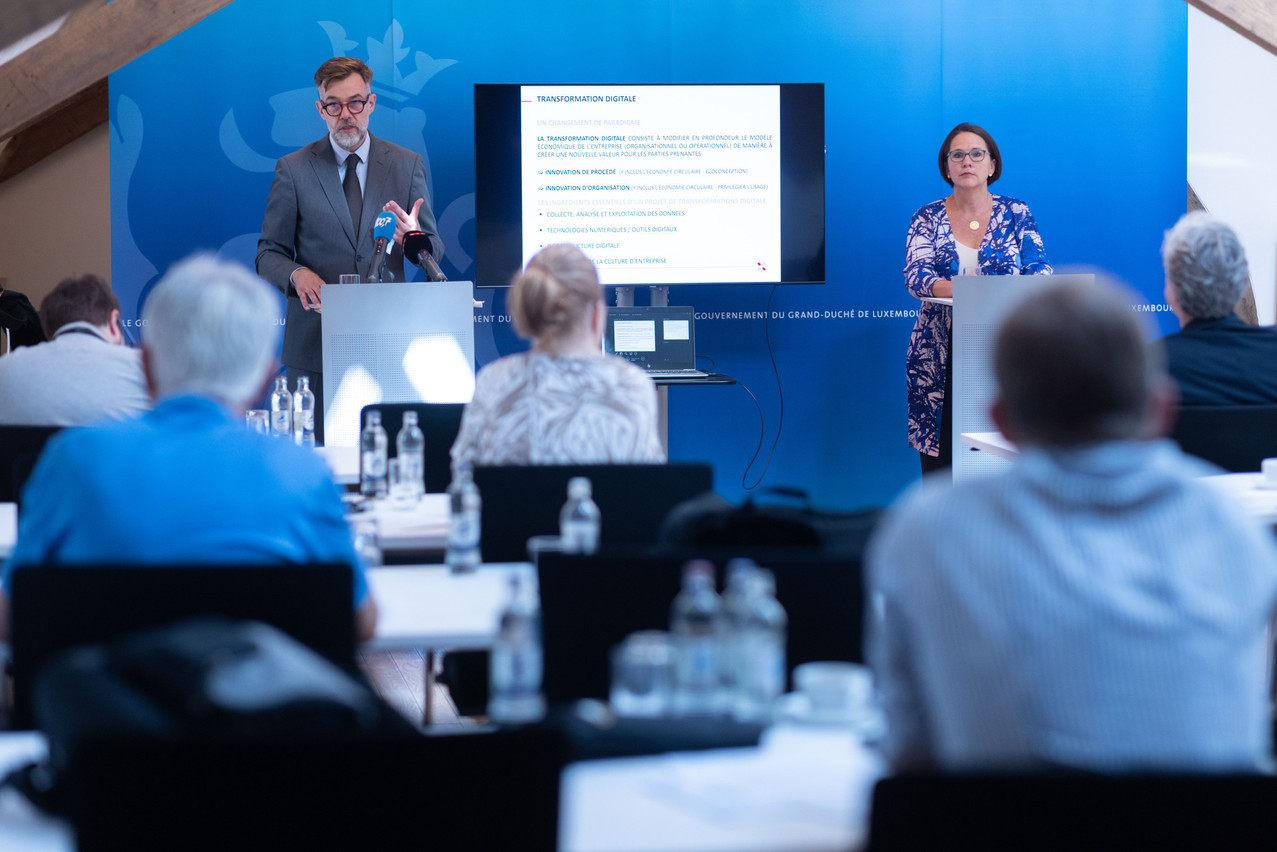Should tax credits be granted to companies that invest in the green transition and digitalisation? Yes, says the government, which is modifying the current system of credits to encourage these transitions. Finance minister (DP) and economy minister (LSAP) have just tabled a bill to reform the investment tax credit.
This is a two-pronged reform. First, the rate of tax relief for all investments has been increased from 8% to 12%. The aim is to stimulate investment by companies based in Luxembourg.
The other aspect of the reform is the extension of the scope of this subsidy to investments and expenditure made by companies as part of their digital transformation or ecological and energy transition projects. For such investments and expenditure, companies will be able to benefit from an additional bonus of 6%. This credit replaces the credit for additional investment, which has been abolished.
A major new feature is that, in addition to the capital expenditure usually covered by the tax credit system, operating expenditure will also be eligible for this bonus, up to a maximum of 18%.
Criteria, attestation and certification
What digital transformation or ecological and energy transition projects are eligible? The project lists the precise objectives that the investment and operating expenditure must meet.
In the authors’ view, digital transformation consists of “fundamental changes to the company’s business model at an operational or organisational level in order to create new value for stakeholders.” As for the ecological and energy transition, the aim is to support “any change that reduces the environmental impact of the production or consumption of energy or the use of resources.” The circular economy is targeted insofar as it enables the life of a product to be extended, in particular by reusing it.
As investments can be very diverse, the bill proposes the introduction of a system of attestation and certification.
The company will have to submit its project to the ministry of the economy. After receiving the opinion of an advisory committee, the economy ministry will decide, together with the ministers responsible for finance, the environment and energy, whether the investment is eligible. It will then issue a certificate.
When filing its tax return, the company will then have to present a certificate issued by the ministry of the economy attesting to the reality of the investment and expenditure.
“As a tax measure included in the Solidaritéitspak 2.0 package, this major modernisation of the investment tax credit applies to craft, commercial and industrial businesses,” said the two ministers. The new scheme will apply from the 2024 tax year.
Other transition aid in the pipeline
With the exception of déi Lenk and the ADR, there is a consensus among the political class on both the form and the substance of this aid, as seen at the by the Paperjam + Delano Business Club in the run-up to the legislative elections on the subject of taxation, public finances and the financial centre.
(déi Lenk) is opposed in principle to encouraging companies to behave virtuously through tax deductions. “It rarely works. It’s like saying to drivers: if you obey the highway code, you’ll get a reward. At some point, there has to be a penalty. We don’t think that reducing charges is a good solution.” But he acknowledged that highly targeted aid, particularly for small businesses, can help to diversify and transition the economy.
For (ADR), deductibility is fine. But not at the cost of overloading companies with administrative obligations. Which, in his view, is often the case. And that’s true. But that’s the price to pay in order to have a targeted tax policy.
In the government’s view, the ecological and digital transition is not just for businesses.
Backes said she is thinking about introducing a tax credit for individuals who also wish to invest in startups or companies that invest in the green and digital transition. A bill is already in the pipeline: “The crisis prevented me from doing this earlier,” she said, throwing the metaphorical ball to the next government.
Fayot also pointed out that as part of the roadmap for startups, similar incentives are being studied for business angels.
(déi Greng), minister for mobility and public works, said at the roundtable that he wanted to get the financial markets even more involved in green transport and digitisation. “We would really be missing the boat if Luxembourg did not develop tax breaks and incentives.” For the time being, the subscription tax is degressive according to the green nature of the funds’ investments, which is judged by reference to the European taxonomy. Nuclear power is excluded.
This article was first published in French on . It has been translated and edited for Delano.
